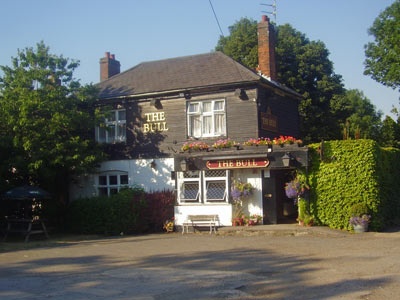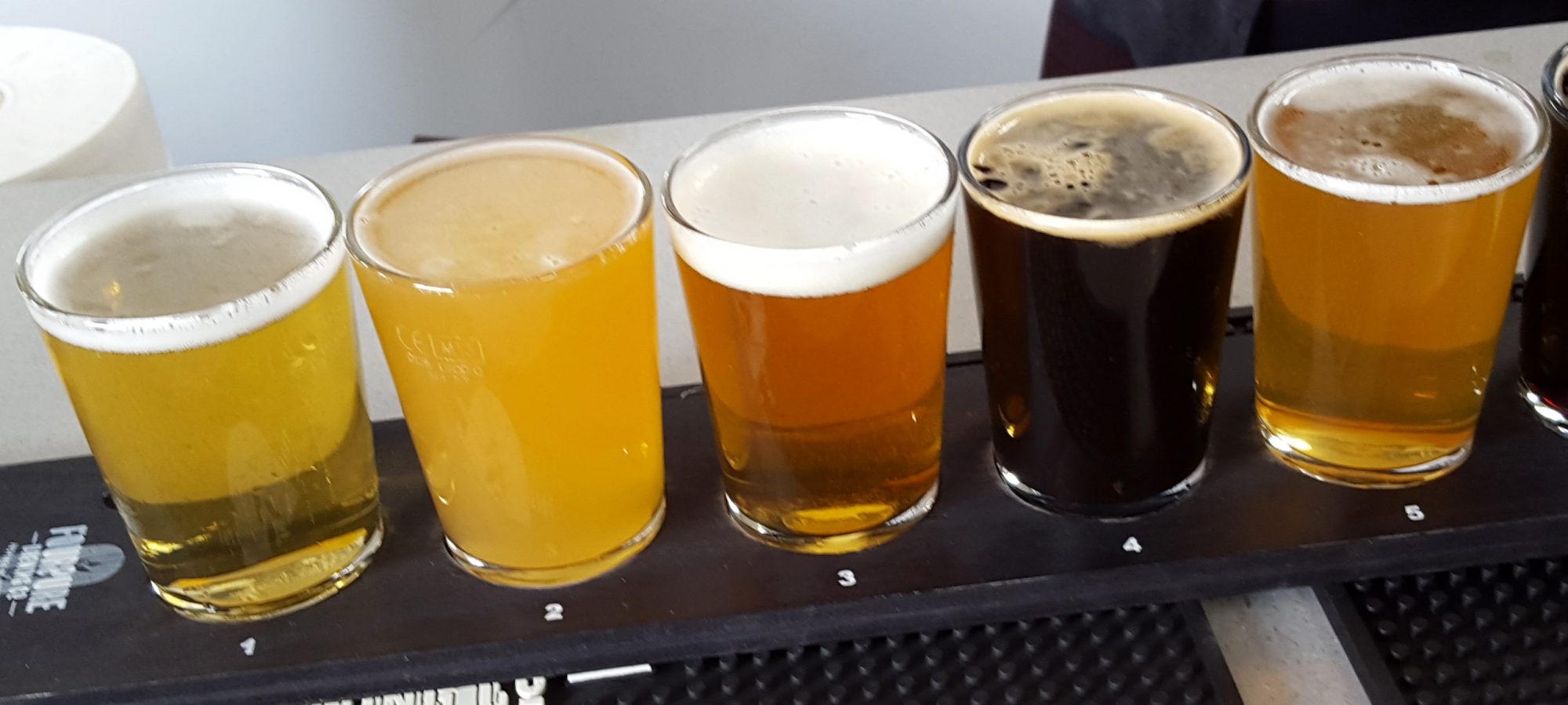In the Aylesbury and Wycombe area we thought we’d suffer a lot more pub closures post-smoking ban and post-credit crunch than we actually did. However, it seems like the bad news may have been postponed. The Rising Sun at Little Hampden closed over the summer — and it was a smart country dining pub in an idyllic Chiltern hamlet. Sadly it had been granted permission for conversion to a private house in 2006 — so the battle had been lost already.
In the summer a pub in Aylesbury, the Duck in Bedgrove, was demolished after being sold to new owners without any change of use permission being sought. (See the local LibDems blog for a good photo.) This was a type of pub that is fast disappearing — an estate community pub. It certainly wasn’t the sort of pub that lured real ale drinkers. However, huge areas of towns like Aylesbury are now without pubs.
In a couple of years the Southcourt and Walton Court estates have lost the Steeplechase (boarded up) and the Skinny Dog (now a Muslim community centre) and the Huntsman is due to disappear in a redevelopment of the local shopping centre. The first pub that’s on the road between Southcourt and Aylesbury town centre, the Old Plough and Harrow, has recently undergone one of the most common conversions for dead pubs (and one that doesn’t need any planning permission) — into an Indian restaurant.
Twenty or thirty years ago these sort of estate community pubs would be packed with drinkers, especially on a Friday or Saturday night. It’s not hard to think of reasons why they’re now in trouble — the smoking ban has hit these pubs harder than most (many customers no doubt went there specifically to smoke as well as drink) and the idiocies of modern marketers have also done their damage — targeting drinks like lager and alcopops at young people with relatively large disposable incomes but also very disposable common sense once they’d had a few wife-beaters down their throats. Pool tables and noisy machines would also target this particular demographic — and many pubs weakened their community links as a result.
But the main factor is surely economic. The typical price of a pint is now fairly close to £3, if not more, and is set to rise a lot further when VAT rises in the New Year as well any beer duty rises in the pipeline. Even using the government’s recommended 21 units of alcohol, this would work out at £31.50 per week (based on a session bitter)…and that would realistically only have a person in for 3 or 4 pints three times a week — far less than the traditional customers of such pubs would tend to do. The likes of Professor David Nutt would no doubt find this cause for celebration, except that the previous customers of community pubs are not likely to have moderated their consumption — they will be down the town centre supermarkets where, on a good day, £31.50 could buy them about 36 cans of Stella (more than four times the units of alcohol) and probably enough to keep most people stocked up with a tin to hand while watching TV for the whole week.
Beer in pubs is too expensive — simple as that. The social act of going down to the pub as an end in itself has been priced out of many people’s reach — and those who can afford it are too busy making more money for themselves or are eating in poncey restaurants or swilling their bonuses away in pubs in the City.
Town centre pubs will still do OK as people go to a destination for a night out. Also some pubs, particularly in the country, will keep their heads above water by concentrating on food — although the example of the Rising Sun shows that even serving up upmarket pub grub is less lucrative than turning the place into a country retreat for the kind of person who’s too posh to go to pubs.
And this also underlines another reason why supermarket beer has become far cheaper than beer in pubs — because pubs, like houses, have had their property values massively inflated and most pubs are now owned by companies who’ve foolishly raised money on the financial markets against these notional values — and the servicing of this debt has been passed on to landlords and customers.
Whereas a generation ago pubs only had to open their doors to get customers coming in, the above factors mean that pubs now have to differentiate themselves to generate custom — and offering interesting and well-kept real ale is a way to do this. The Whip in Lacey Green is an example of a pub that has a bar that’s still packed out most nights — offering five real ales that turn over, on average, every two days. The pub did about 800 different ales last year — that’s well over two a day. And the pub steadily built a reputation on quality — only adding a fourth and fifth beer when demand allowed, unlike the many pubs who offer more real ales than they can turn over before they spoil.

There’s now cause for concern about one pub, which has been a Good Beer Guide stalwart for several years. The Bull in Stoke Mandeville is an old-fashioned, two-bar community local which has bucked the downward economic trend in large part by serving three well-kept real ales. Due to various complicated reasons not entirely unrelated to those above, Stuart, the long-standing landlord has left the pub. His last day was Wednesday this week when I went along to watch the Manchester derby on Sky. It’s a particular shame as the Bull, under Stuart’s management, was a quiet gem of a pub and embodied many of the attributes that many would reel off as intrinsic to the British pub.
